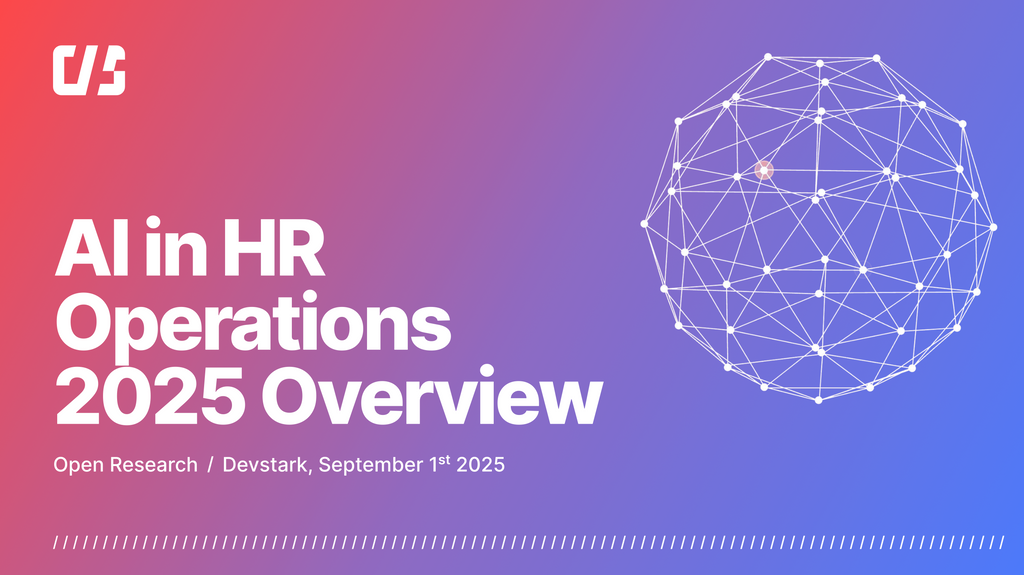Download full report (47 pages).
Artificial intelligence is reshaping how businesses operate, and human resources (HR) is emerging as one of the areas most profoundly transformed. With 78% of organizations worldwide now using AI in at least one business function, HR leaders are increasingly adopting automation to handle recruiting, onboarding, compliance, and workforce management. Adoption has surged dramatically, with AI usage among HR professionals rising from 58% in 2024 to 72% in 2025.
By automating repetitive and time-intensive tasks, AI empowers HR teams to focus on strategic initiatives such as culture-building, workforce planning, and talent management. Companies adopting AI report substantial improvements, including a 63% boost in HR productivity, 55% automation of repetitive work, and a 52% overall increase in HR function efficiency. Beyond efficiency, AI delivers measurable outcomes—faster time-to-hire, reduced recruitment costs, improved retention, enhanced employee experience, and even fairer hiring processes through bias reduction.
Full report (47 pages).
Global enterprises such as Unilever, Walmart, IBM, and KPMG showcase the transformative power of AI in HR. From AI-driven candidate screening that saves thousands of interview hours to onboarding agents that cut inquiry volumes in half, the technology is enabling HR teams to scale operations without expanding headcount. Devstark research report brings together real-world use cases, industry benchmarks, and practical guidance to help you make informed decisions about AI adoption in HR. Whether you’re considering off-the-shelf tools or exploring custom development, you’ll find actionable insights to align technology with your business needs.
Inside the report you will find:
- Key stats & benchmarks — adoption rates, productivity gains, and efficiency improvements;
- Core applications — candidate sourcing, compliance, onboarding, scheduling, and workforce analytics;
- Real-world case studies — Unilever, Walmart, IBM, KPMG, Wells Fargo, and more;
- Decision insights — when to choose off-the-shelf platforms vs. custom AI development;
- Risks & challenges — bias, compliance, data security, and cultural adoption barriers;
- Action steps — how to pilot AI in HR, integrate it with existing systems, and scale responsibly.
The integration of AI into HR is no longer a distant trend—it’s a competitive advantage shaping the future of work. Organizations that embrace intelligent automation today are already seeing faster hiring, lower costs, and stronger employee engagement, while positioning themselves for long-term growth.
Download the full research below to discover how leading companies are transforming HR with AI—and how your organization can unlock the same advantages.


